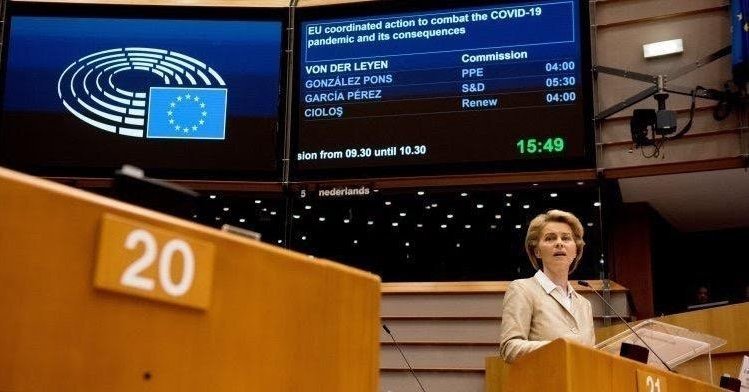The EU has some exclusive competences, particularly regarding trade. This includes managing the single market, which was established following the signing of the Treaty of Rome in March 1957. This is effectively a federalist tool since the European Union has specific competences and the rules are supra-national. It will certainly be useful in restarting member states’ economies, as it brings together many businesses and hundreds of millions of consumers.
Competences and appropriate tools
Let’s not forget that the European Union also has exclusive competence in the negotiation of commercial trade agreements. Should the EU grow its commercial trading network by negotiating new agreements?
Let’s take a brief look at the Common Agricultural Policy. It is an important tool the EU has when it comes to food sovereignty. The agricultural sector, along with the health sector, has been one of the most essential industries during lockdown, and it has been particularly affected by the disruption of production systems. Measures have been put in place to help farmers and fishermen address problems they are currently facing and will face in the future. Though commercial activity is thus very closely linked to the EU, this supranational tool will still not be enough to tackle the crisis.
The EU has another federal mechanism which will assist in resolving certain issues: the funds distributed by and for member states. These include the Cohesion Fund, the European Regional Development Fund (ERDF), the European Social Fund (ESF) and importantly the European Union Solidarity Fund (EUSF). These funds very much embody the federal idea of solidarity. They will be particularly useful for addressing the coronavirus crisis, and the regional inequalities which will bring about a financial crisis and by extension a social crisis.
Let us also remember that the EU has shared competences in regard to the environment (except for the conservation of marine biological resources under the Common Fisheries Policy, which is an exclusive competence), which (along with digital technology) will be one of the major challenges for economic recovery, together with the search for a vaccine and restarting the European economy.
The third (imperfect) federalist element is of course the single currency at the heart of the Eurozone. The euro is managed by the European Central Bank (ECB), an institution which has notably reacted to the crisis by purchasing a massive 750 billion euros of public and private debt (a figure that has since been brought up to 1 trillion euros).
A new federalist-inspired tool for the economic plan will also be put in place: the SURE scheme, a fund of 100 billion euros proposed by the European Commission to finance partial unemployment in the EU. The scheme in fact is the beginning of resources being pooled, and is a source of real support for member states.
Going much further
Though these tools are indeed federalist, the European Union is still not a true federation. Indeed, while the European Parliament has been able to make its voice heard, its resolutions — which are the work of MEPs elected by universal suffrage — are not always followed by the European Commission and/or the European Council. Yet the role of our MEPs is fundamental, not only to communicate citizens’ expectations, but also to make proposals for the fight against COVID-19.
A European federation would in fact entail not only a European public space, as we have seen tentatively emerging during this crisis, but also a reinforced European democracy.
Furthermore, while the European Union has been accused of not doing enough in the field of health, this does not come within its competence; it remains the domain of member states (with the EU only serving a supportive role). Yet there has been a need for coordination since the beginning of the crisis, in order to effectively quarantine, organise solidarity between member states (which definitely happened), and consider an effective strategy to lift lockdown.
While a number of agencies already exist, such as the European Medicines Agency, it is time to provide the EU with competences shared with member states. The Commission has already established a fund to accumulate medical equipment and a fund for research for a vaccine. However, these initiatives must go further if we want to achieve true efficiency and true solidarity around health in the European Union. This is why the debate around the ‘recovery bonds’ or coronabonds - that is, the possibility of the European Union taking on member states’ debts - was particularly significant for federalists; it is the acquisition of a new federalist tool and a demonstration of solidarity. Accordingly, it should allow the divide between northern and southern Europe to narrow.
The European response is federalist in that it seeks coordination and solidarity between EU member states and applies the principle of subsidiarity in certain domains. It is currently employing tools to address the crisis: European funds, the single market, and certain shared and exclusive competences. The Commission has also taken a number of federalist-inspired measures necessary to help citizens. However, there is still a long way to go to achieve a Union which is capable of combatting future crises in a truly federalist manner.

Follow the comments: |
|
